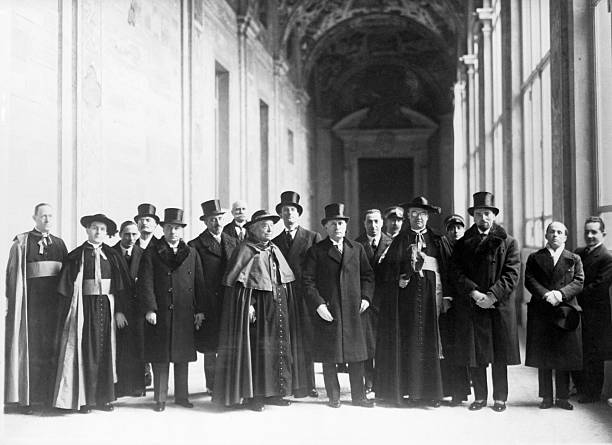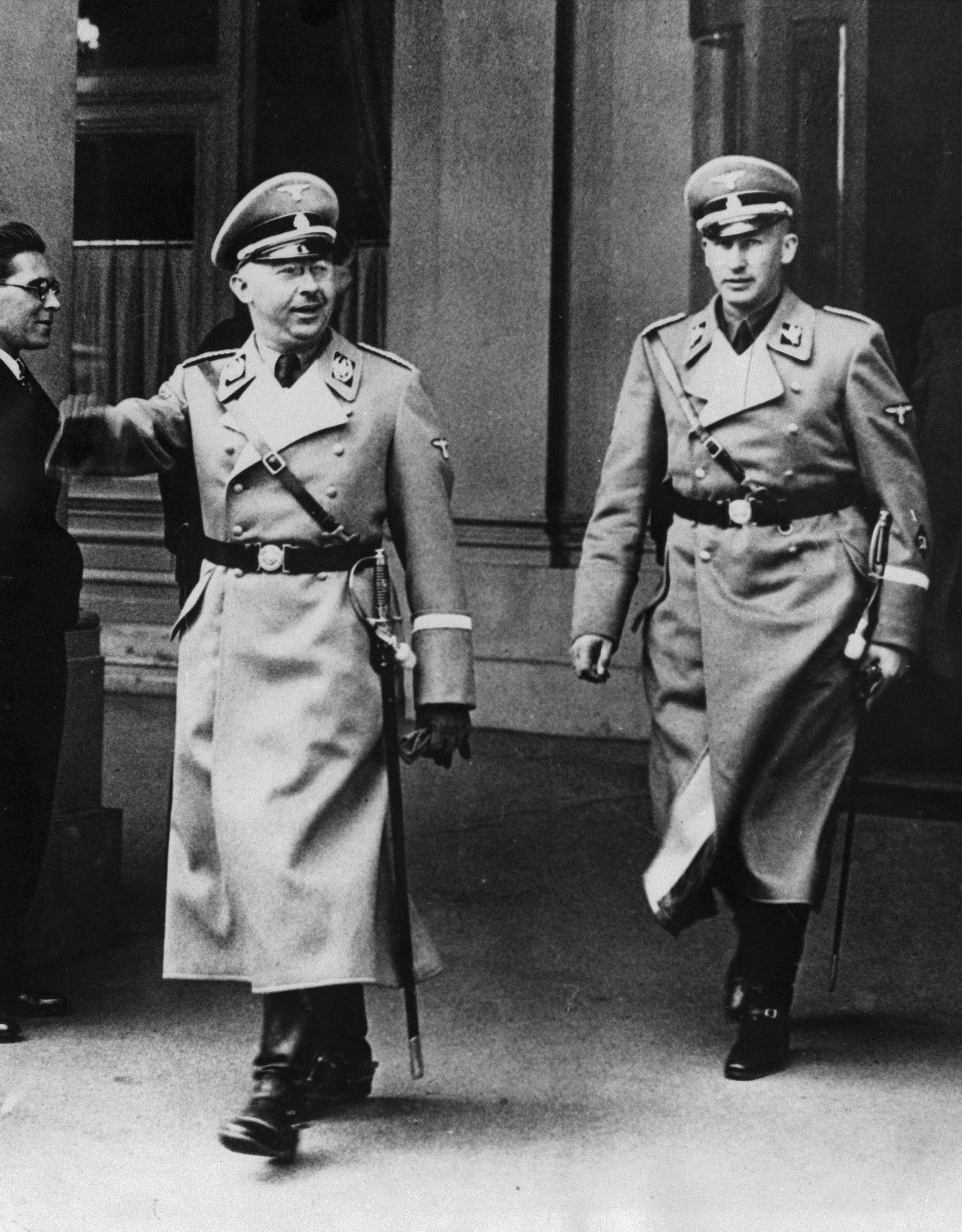|
Stefano Siglienti
Stefano Siglienti (1898 – 1971) was an Italian banker and politician who served as the Italian Minister of Finance, minister of finance from 18 June until 12 December 1944. He held several banking posts until his death. Early life and education Hailed from an intellectual bourgeois family, Siglienti was born in Sassari on 17 January 1898 to Alberto Siglienti, a lawyer, and Francesca Conti. He received a law degree in 1921. Career and activities Following graduation from high school, Siglienti began to work at a local bank in Sassari. He took part in World War I as a second lieutenant and was decorated by the King of Italy in July 1918 due to his activities in the war. He was one of the founders of the Action Party (Italy), Action Party in Sardinia. In 1923, he began to work at the Sardinian Land Bank of which he became deputy director general in 1945. In 1925, he moved to Rome and contributed to the publications, including ''Il Mondo (newspaper), Il Mondo'' and ''Il Becco Giall ... [...More Info...] [...Related Items...] OR: [Wikipedia] [Google] [Baidu] |
Italian Minister Of Finance
This is a list of Italian ministers of finance, from 1861 to present. List of ministers of finance Kingdom of Italy (1861–1946) ;Parties: *1861–1912: ** ** *1914–1922: ** ** ** ** ** *1922–1943: ** *1943–1946: ** ** ** ** ;Coalitions * ** ** ** * ** * ** * ** Italian Republic (1946–present) ;Parties: *1946–1994: ** ** ** ** ** ** ** *1994–present: ** ** ** ** ** ;Governments: * ** ** ** ** * ** ** ** References {{reflist Lists of government ministers of Italy, Finance ... [...More Info...] [...Related Items...] OR: [Wikipedia] [Google] [Baidu] |
Anti-fascist
Anti-fascism is a political movement in opposition to fascist ideologies, groups and individuals. Beginning in European countries in the 1920s, it was at its most significant shortly before and during World War II, where the Axis powers were opposed by many countries forming the Allies of World War II and dozens of resistance movements worldwide. Anti-fascism has been an element of movements across the political spectrum and holding many different political positions such as anarchism, communism, pacifism, republicanism, social democracy, socialism and syndicalism as well as centrist, conservative, Liberalism, liberal and nationalist viewpoints. Fascism, a far-right ultra-nationalistic ideology best known for its use by the Italian Fascists and the German Nazism, Nazis, became prominent beginning in the 1910s. Organization against fascism began around 1920. Fascism became the state ideology of Italy in 1922 and of Germany in 1933, spurring a large increase in anti-fascist action ... [...More Info...] [...Related Items...] OR: [Wikipedia] [Google] [Baidu] |
La Nuova Sardegna
is an Italian regional daily newspaper for the island of Sardinia. History and profile was founded in 1891 by Enrico Berlinguer, grandfather and namesake of Enrico Berlinguer, national secretary of the Italian Communist Party. The paper has its headquarters in Sassari Sassari ( ; ; ; ) is an Italian city and the second-largest of Sardinia in terms of population with 120,497 inhabitants as of 2025, and a functional urban area of about 260,000 inhabitants. One of the oldest cities on the island, it contains .... was acquired by in 1980. The 2008 circulation of was 59,819 copies. ''Accertamenti Diffusione Stampa''. The Espresso Group reported that the circulation of the paper was 42,300 copies in 2014. References< ...
|
Mario Berlinguer
Mario Berlinguer (; 29 August 1891 – 5 September 1969) was an Italian lawyer and politician. Early life and family Born on 29 August 1891 in Sassari, Sardinia, Kingdom of Italy, Berlinguer descended from a noble Sardinian family of Catalan origins. As many of his ancestors, he belonged to the Italian Freemasonry and was Great Master (33rd Scottish Rite Mason) of the regular lodge of Sassari, affiliated to the Grand Orient of Italy. Political career and later life The young Berlinguer was a follower of the Meridionalist activist Gaetano Salvemini. After his graduation in law, he collaborated with the newspaper ''La Nuova Sardegna'' and other Italian newspapers. Berlinguer was elected to the Italian Chamber of Deputies in 1924. The following year, he founded the clandestine newspaper ''Sardegna libera'' (Free Sardinia), which attracted him the hostility of the Italian fascist regime. His sister, Ines, was among the anti-fascist figures and was married to Stefano Sigli ... [...More Info...] [...Related Items...] OR: [Wikipedia] [Google] [Baidu] |
Italian Banking Association
Associazione Bancaria Italiana is the trade association of Italian banks. The association was founded in 1919, few years after the Association of Italian Saving Banks (ACRI, founded 1912), the Association of Italian Rural Credit Unions (''Cassa Rurale ed Artigiana'', founded 1915) and more than 40 years after the Association of Popular Banks of Italy (''Banca Popolare'', founded 1876). Chairmen * Maurizio Sella ( Banca Sella) * Giuseppe Mussari (Banca Monte dei Paschi di Siena Banca Monte dei Paschi di Siena S.p.A. (), known as BMPS or just MPS, is an Italian bank. Tracing its history to a mount of piety founded in 1472 () and established in its present form in 1624 (), it is the world's List of oldest banks, oldest ..., ?–2013) * Antonio Patuelli ( Cassa di Risparmio di Ravenna, 2013–) References External links * Banking in Italy Business organisations based in Italy Organizations established in 1919 1919 establishments in Italy {{Italy-org-stub ... [...More Info...] [...Related Items...] OR: [Wikipedia] [Google] [Baidu] |
National Council (Italy)
The National Council (''Consulta Nazionale'') was an unelected provisional legislative assembly set up in the Kingdom of Italy after the end of World War II. It fulfilled the roles of parliament until regular elections could be held. It first sat on 25 September 1945 and was dissolved after the national elections on 2 June 1946, which formed the first Constituent Assembly of Italy. History The Legislative Decree n. 146 of 5 April 1945 established the National Council, declaring that its purpose was to give opinions and solutions on general problems and on legislative measures promoted by the Italian government. The government was obliged to hear the opinion of the Council on certain matters such as state budget, taxes and electoral laws. The Council, divided into 10 commissions, ratified, among other laws, the legislative decree that assigned to a popular referendum the choice between monarchy and republic. It also ratified a law that allowed the universal suffrage for the f ... [...More Info...] [...Related Items...] OR: [Wikipedia] [Google] [Baidu] |
Banca IMI
Banca IMI is a subsidiary of Intesa Sanpaolo which is specialized in investment banking and capital markets. The bank can trace its origins to the Istituto Mobiliare Italiano. IMI merged with Istituto Bancario San Paolo di Torino to form Sanpaolo IMI in 1998 (through which a new subsidiary of the new group ''Banca d'Intermediazione Mobiliare'' was created ), which in turn merged with Banca Intesa Banca Intesa S.p.A. was an Italian banking group, formed in 1998 by merger of Cassa di Risparmio delle Provincie Lombarde (Cariplo) and Banco Ambrosiano Veneto. The next year, the banking group merged with Banca Commerciale Italiana to become ... in January 2007. In October Banca IMI (as ''Banca d'Intermediazione Mobiliare IMI S.p.A.'') absorbed the corresponding subsidiary of Intesa: Banca Caboto to become the new ''Banca IMI S.p.A.''. References External links * Banks of Italy Intesa Sanpaolo subsidiaries Sanpaolo IMI Banks established in 1931 Italian companies esta ... [...More Info...] [...Related Items...] OR: [Wikipedia] [Google] [Baidu] |
Ardeatine Massacre
The Ardeatine massacre, or Fosse Ardeatine massacre (), was a mass killing of 335 civilians and political prisoners carried out in Rome on 24 March 1944 by German occupation troops during the Second World War as a reprisal for the Via Rasella attack in central Rome against the SS Police Regiment Bozen the previous day. Subsequently, the Ardeatine Caves site (''Fosse Ardeatine'') was declared a Memorial Cemetery and National Monument open daily to visitors. Every year, on the anniversary of the slaughter and in the presence of the senior officials of the Italian Republic, a solemn state commemoration is held at the monument in honour of the fallen. Each year, 335 names are called out, a simple roll call of the dead, to reinforce that 335 discrete individuals symbolise a collective entity. Historical background In July 1943, the Allies landed on the island of Sicily, preparing to invade the mainland, and Rome was bombed for the first time. On 24 July 1943, the Fascist Gr ... [...More Info...] [...Related Items...] OR: [Wikipedia] [Google] [Baidu] |
Fascist Italy (1922–1943)
Fascist Italy () is a term which is used in historiography to describe the Kingdom of Italy between 1922 and 1943, when Benito Mussolini and the National Fascist Party controlled the country, transforming it into a totalitarian dictatorship. The Italian Fascists imposed totalitarian rule and crushed political opposition, while simultaneously promoting Modernization theory, economic modernization, traditional social values and a rapprochement with the Roman Catholic Church. According to historian Stanley G. Payne, "[the] Fascist government passed through several relatively distinct phases". The first phase (1922–1925) was nominally a continuation of the parliamentary system, albeit with a "legally-organized executive dictatorship". In foreign policy, Mussolini ordered the pacification of Libya against rebels in the Italian colonies of Italian Tripolitania, Tripolitania and Italian Cyrenaica, Cyrenaica (eventually unified in Italian Libya), inflicted the Corfu incident, bombing ... [...More Info...] [...Related Items...] OR: [Wikipedia] [Google] [Baidu] |
Regina Coeli Prison
; ) is the best known prison in the city of Rome. It was formerly a Catholic convent and became a prison in 1881. History The prison was originally a Catholic convent (hence the name), built in 1654 in the rioni of Rome, rione of Trastevere. The construction was started by Pope Urban VIII in 1642, but his death stopped the works and the complex remained unfinished. Between 1810 and 1814 the former Catholic convent was confiscated by Napoleonic French forces, who suppressed all religious orders in territories under French control during the Napoleonic Wars. While the complex was returned to Carmelites, Carmelite nuns shortly afterwards, they abandoned the convent in 1873. The newly established Kingdom of Italy (1861–1946), Kingdom of Italy confiscated the complex and decided to turn it into a prison in 1881. The refurbishing was carried out by Carlo Morgini and was completed only in 1900. A new complex housing a prison for women, dubbed "Mantellate Sisters, Le Mantellate" wa ... [...More Info...] [...Related Items...] OR: [Wikipedia] [Google] [Baidu] |
Schutzstaffel
The ''Schutzstaffel'' (; ; SS; also stylised with SS runes as ''ᛋᛋ'') was a major paramilitary organisation under Adolf Hitler and the Nazi Party in Nazi Germany, and later throughout German-occupied Europe during World War II. It began with a small guard unit known as the ''Saal-Schutz'' ("Hall Security") made up of party volunteers to provide security for party meetings in Munich. In 1925, Heinrich Himmler joined the unit, which had by then been reformed and given its final name. Under his direction (1929–1945) it grew from a small paramilitary formation during the Weimar Republic to one of the most powerful organisations in Nazi Germany. From the time of the Nazi Party's rise to power until the regime's collapse in 1945, the SS was the foremost agency of security, mass surveillance, and state terrorism within Germany and German-occupied Europe. The two main constituent groups were the '' Allgemeine SS'' (General SS) and ''Waffen-SS'' (Armed SS). The ''Allgemeine ... [...More Info...] [...Related Items...] OR: [Wikipedia] [Google] [Baidu] |





